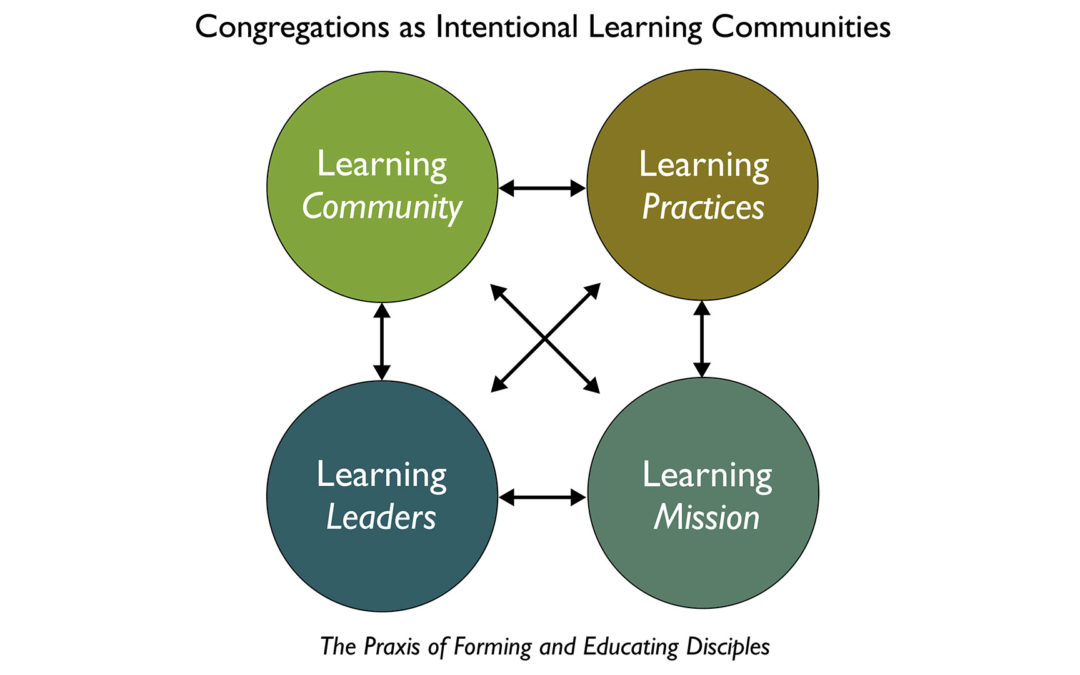How are churches reframing Christian education in order to be effective in growing faith and engaging in mission in Australian society in the 21st century? This question was the basis for my doctoral research, completed in 2018, and now part of my ongoing work. Christian formation and education are core praxis for the church, part of its essential Christopraxis, its participation in the ministry and mission of Christ.
It is ironic that at a time when many sectors of the church are seeking to focus on discipleship, they have also lost an intentional focus on faith formation and education. The church has a wealth of learning, both historical and contemporary, about disciple-making. So why is it that across all sectors of the church we choose not to draw on this wisdom? It is like saying that the Bible is fundamental for the church, however we don’t need any biblical scholarship. Or that people aren’t deepening their prayer habits, so let’s ignore the church’s rich learnings about how to form the practices of prayer. In my view, the same is true for Christian formation and education.
My research was developed as a qualitative study of the leadership and practices of 13 Uniting Church congregations across Australia. Leaders were interviewed in 2011. The research was prompted and in part sponsored by the Uniting Church in Australia’s national Assembly which sponsored a project to explore the nature and future of Christian education in the UCA.
What is it that makes some churches and their leaders different? The study examined churches who were deemed by regional church leaders to be exemplary in growing mature disciples. I constructed a balanced sample of these churches and interviewed their ministers. Alongside this I explored recent research and writing about the evolving nature of Christian education and faith formation,
The initial research themes were learning, leadership, community and mission. This developed further into analysis of the praxis of learning communities, congregational practices, educational leadership and congregational mission.
To jump to the end…..
“The key conclusion of this study is that the intentional (re)forming of congregational Christian formation and education is core ecclesial praxis for growing mission-shaped disciples. Rather than being another mere set of church activities, intentional processes and environments for growing disciples are part of the Spirit’s constant guidance, inspiration and renewal of the people of God. Notwithstanding other definitions of Christian education, I suggest that forming mature disciples of Jesus Christ is not primarily an internal aim of the church but an integral aspect, a core praxis, of its participation in God’s mission. Discipleship is an outcome of Christian formation and education, not a replacement for them. Indeed, the church’s loss of focus on discipleship may be the result of a lack of recognition of the intentional processes that lead to mature discipleship. Formation and education permeate the church’s practices such that it constantly learns to embody the mission of Jesus Christ. This is both gift and vocation for the church. Therefore, those who lead congregations, those who provide resources for congregations and those who educate ministry leaders should rediscover and reemphasise the understandings and practices of formation and education as vital for growth in Christian faith and growth in participation in the mission of God.”
Craig Mitchell, (Re)forming Christian Education in Congregations as the Praxis of Growing Disciples for a Missional Church, PhD Thesis, Flinders University, 2018.
This diagram is an indication of interdependent factors in communities who intentional form Christian disciples. It is not a model, but a visual representation of some key influences based on empirical investigation. I will say more about this in future posts. I am currently working on a book based on my research.
